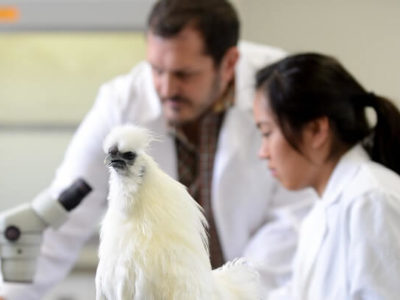Do you consider Marie Curie your hero? How about Max Weber? You may not revolutionize your field this fall, but you might be able to work with someone who does. Research isn’t just for tenured professors and long-haired grad students—undergrads who prove their dedication and passion can become a professor’s right-hand man, and not just in the hard sciences. These days, social sciences offer a growing field for undergraduate research, and the experience proves just as valuable. From Googling “research opportunities near me” to interviewing for the research position of your dreams, make yourself stand out so you can go out and join the white lab coats already.
Why You Should Get Involved

Some of you (specifically those not applying to medical school) may wonder why you should add “undergraduate research” to your resume. No, you won’t get any scientific super powers. According to Executive Officer for Council on Undergraduate Research Elizabeth Ambos jumping into research early on in your college career carries a lot of real advantages. You can earn course credit while possibly getting paid. Also, you might work side by side with a highly acclaimed professor, which can lead to future opportunities. “[Career and academic opportunities] build through undergraduate research participation. Doing undergraduate research on campus, with a mentor, will get you that foot in the door,” said Ambos.
Make the most of the connections you come across with every active-working person you meet in your field; most connections could jump-start your future career. Depending on your school, you may be able to find research projects in psychology, philosophy, sociology, linguistics, political science, economics, religion and even art and literature.
Aside from the logistics of research, you will have excellent bullet points for your resume. Employers love to see research in an applicant because it means you’ve built relevant skills like innovation, teamwork, communications and critical thinking. “You learn things that are almost unteachable,” said Ambos. You might even get the chance to publish or present during your undergraduate years, immediately sending your applicant rivals into a cold sweat. “[Publishing and presenting] go right on your resume. Grad school looks right for those,” said Ambos.
Above all, you might actually enjoy participating in your field in a real and valuable way. Whether you’re supervising volunteers in a psych experiment or running gels for a biologist, your work will further your understanding of a subject you’re passionate about. “It’s a tangible outcome…You get to the stage where you have a project or something you’re really proud of that you’ve taken the lead on,” said Ambos.
Where to Find a Position

As an undergrad, you must seek out research positions on your own. You won’t see research opportunities advertised on campus, so it takes a bit of effort to find out what your school offers. University of Illinois at Urbana-Champaign sophomore Eliz Oksuz found her position via a school-wide research fair where the director of the project had set up a booth. “I did think [the research] would be fun, and it was” said Oksuz. University of Wisconsin-Madison sophomore Alexandria Li asked her TAs, House Fellow and friends from class, while also researching extensively online, to find her project. Some schools will actually have a council on undergraduate research (CUR) that strives to help undergrads find opportunities.
Ambos suggests you find the number of the person in charge of your school’s council, call and ask the simple question: How do I get involved? Although phone calls to strangers make me cringe, Ambos says many students start their (successful) search with this simple method.
If your school doesn’t have a CUR, the traditional method of sticking around after class for a couple minutes and asking your own professor or TA always works. Even professors and TAs who aren’t personally conducting research know who you should reach out to regarding research opportunities. Ultimately, the best method varies from school to school, and it will take a bit of digging and word-of-mouth to find research that interests you.
Construct the Perfect Follow-Up

Campus fairs have a distinct advantage here, since you know for a fact that they want undergraduate researchers on their team and they will tell you how to follow up. However, if you found the opportunity through other means, you’ll need to construct the follow-up phone call (or e-mail) yourself.
Take time to research the professor’s background, previous work and current project before emailing in order to specify why you want this opportunity. Stray away from phrases like, “I love science.” Instead, stress your passion for electrochemistry and how the professor’s research on sustainable energy sources and its implications regarding climate change blow your mind. “[Assertiveness] won’t turn most professors off, they’ll be delighted,” said Ambos. Don’t be afraid to be assertive, and don’t be afraid to reach out to professors who don’t have openings posted. They may actually find your level of interest impressive.
Prepare a Kickass Application

Some professors might take you on immediately, after which you’ll begin training with a grad student or the professor herself. From there, the real fun begins. On occasion, applications and interviews must be completed prior to acceptance. Extremely competitive research positions may include a formal interview, or a series of interviews.
You may want to prepare for more than just a firm handshake. Li went through two rounds of interviews for her research position and answered a few fairly challenging chemistry questions while being timed. Aware of Li’s General Chemistry knowledge, the interviewer asked about in-class topics such as serial dilutions, buffers and isomers. So brush up on your chemistry (or your European art history) before the interview.
Most importantly, if all your work pays off and you find yourself in a lab this fall, don’t forget to make the most of it. And if you get the chance to handle radioactive spiders, for god’s sake–don’t take your gloves off.



















